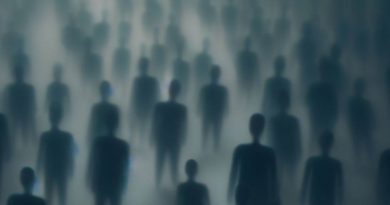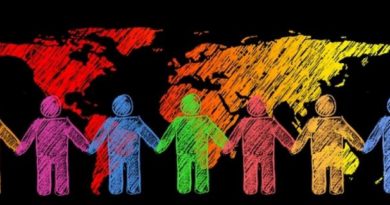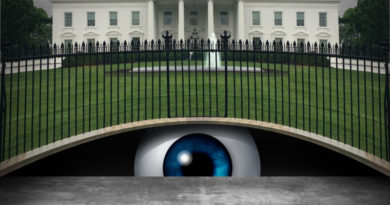Prime Minister Janez Janša on Radio Ognjišče: “The deep state is not losing influence in the background.”

In the interview, Prime Minister Janez Janša first talked about the 30th anniversary of Slovenia’s independence. He noted that the current context does not allow for a festive atmosphere, and expressed the hope that we will have mastered the epidemic by the decisive weeks which will most mark the celebration of the 30th anniversary of independence, so that a happy holiday atmosphere will be possible.
He underlined that it is a major scandal that we still do not have a Museum of Slovenian Independence thirty years after having attained this freedom, and stated that he hopes that we will finally get it on the occasion of the 30th anniversary. He noted that the competent authorities took the necessary steps towards establishing the Museum of Slovenian Independence during his first government, but that progress has since been very slow as a result of bureaucratic procedures, with subsequent governments not giving this matter the attention it deserved. Now firm plans for the establishment of the museum have been made, and the funds needed have been secured.
He continued by highlighting that: “We were united as a nation at the time of the plebiscite. The unity of the people resulted in the positive outcome of the plebiscite and generated an abundance of energy aimed at independence. Some nevertheless wanted to reduce this from both the inside and the outside, but this energy was maintained for another six months and that was sufficient for the Demos government to persist.” The Prime Minister said he is convinced that the fundamental unity of the nation expressed in the plebiscite was the key factor in the nation’s unanimous support for the Territorial Defence and Slovenian Police that together defended the newly declared independent state. “The plebiscite remains the only time in the history of Slovenia when the nation wrote its own destiny. That is why the Slovenian state is very special in democratic terms with regard to its origin and establishment. Very few countries emerged in this way, and with such immense support from the people,” he added.
In the interview, the Prime Minister further emphasised that those whose personal choice was against an independent Slovenia were later promoted for their counter-independence actions. “If you look at the votes and actions of some key people for whom an independent Slovenia was not the preferred option, you can see that they were given special honour after the Slovenian state was proclaimed, despite their personal lack of support for these efforts,” said Prime Minister Janez Janša, adding that such individuals had even managed to take up the posts of Prime Minister and President of the Republic, and noting that Roman Jakič, who had been against the establishment of the Slovenian Armed Forces, became the Minister of Defence.
The Prime Minister went on to talk about the epidemic and the role of politics in dealing with it. He pointed out that at the beginning of the second wave of the epidemic, which was expected to be worse than the first, some were trying to suggest that the government was inventing the threat, that it would take repressive measures, and use the epidemic to do many things under false pretences; however, Slovenia did not declare a state of emergency, as was done elsewhere. “Slovenia is also the only country in the world with a Constitutional Court that believes it is primarily competent when it comes to an epidemic, diseases, preventative measures and defence, and this is becoming dangerous in terms of the state’s ability to function normally,” he said. He also explained that there is no country in the world where the opposition would be threatening to file a constructive vote of no confidence for nine months, with the media reporting on this on a daily basis.
He then went on to say that some consider the coronavirus their ally in the conflict with the government, and operate under the principle that “the worse the epidemic, the better politically for us because we can further blame the government.” He pointed out that the healthcare system has been left with no reserves and the situation is very difficult to maintain, so that those who fall ill are not always provided with adequate care. “The situation is very serious, and the foremost interest of the political left, with the great support of the most important media outlets, is in attempting to topple the government and harassing it, thinking ’the worse the epidemic gets, the better for us’” said Prime Minister Janša.
He also emphasised that if the number of new daily cases of infection does not stabilise, Slovenia will be forced into a full lockdown. “Although we all hate the measures, we will be forced to do this if we don’t want people to continue to die,” he added. He believes that in the event of a full lockdown of the country most of the economy will have to be subject to it, and the movement restrictions will be even stricter, i.e. people will only be able go to pharmacies and stores shop 50 meters away from their homes.
The Prime Minister mentioned that a major problem in the battle against the epidemic is the fact that there has long been no or very little investment in healthcare, both in terms of healthcare capacities and long-term care over the last 15 years, and that previous governments had instead simply spent tens of millions of euros on studies examining how to ensure long-term care, thus supporting their friends and allies.
With regard to vaccination, he said there are significantly more people who want to be vaccinated than there are doses of the vaccine available. “Once the vaccine has been approved, it will not be available in sufficient quantities, so the situation in which there’ll be more people who’d like to get vaccinated than there are doses available will continue for some weeks and months. The critical or risk groups of the population will therefore be vaccinated first. When the ordered vaccines are delivered, three double doses will be available for the population,” added Prime Minister Janša.
When asked about the new Minister of Health, the Prime Minister answered that the minister will be known when the proposal has been formulated and coordinated within the coalition. “The Ministry of Health was long neglected; it is the smallest ministry in the country and also weak, which was convenient for those who made all the decisions in the background,” said the Prime Minister, adding that a clear picture of the situation at the Ministry of Health is needed not only because of the epidemic, but also because of the reforms needed, i.e. the rationalisation of healthcare purchases and the elimination of much of the chaos that used to be present.
In the interview on Radio Ognjišče, the Prime Minister also touched upon the police strike. He said that preparations for the reform of the public sector pay system are under way. “The government will exempt the operational part of the police, army and healthcare from the administrative part of the pay system, and make the regulation of relations separately and fairer,” he pointed out, and expressed his belief that the pay system in the police represents a problem similar to that seen in other sectors, and that there are large disparities in workload.
Prime Minister Janez Janša continued to talk about the current situation on the national political stage. When asked whether the same methods are used in the overthrow of right-wing governments as in the past, with the involvement of government institutions, the Prime Minister replied that this practice has become established. He said that he does not remember any elections held in Slovenia in which the so-called left would win by playing fair. There has always been an abuse of one or more government institutions or the monopoly over the media. He went on talking about the double standards. “Imagine the opposite scenario in which the parties of the governing coalition are actually the opposition and are doing what the Constitutional Arch Coalition (KUL) is doing. What do you think the attitude of media would then be towards us? Everyone would be disgusted because this would be a wasteful endeavour, but since they are doing this, they are widely supported.” In the Prime Minister’s opinion, these double standards are destroying Slovenian democracy, and in the current situation they are genuinely threatening our health and even lives.
Regarding the possibility of a constructive vote of no confidence, Prime Minister Janša said that the possibility of such a vote being passed always exists, but he also expressed his doubts. “ Even the greatest optimists of the political left do not believe that the KUL parties can form a government that would be effective, using the same ingredients that once disintegrated it,” said the Prime Minister, adding that with all this going on the arms of DeSUS MPs are being twisted, that they are now threatened and under pressure. A similar approach is planned for the SMC deputies. He continued by saying that these are unconstitutional and criminal pressures.
Prime Minister Janez Janša also spoke about the moves of the Constitutional Court and commented on the decision of constitutional judges who stayed the implementation of an act on investments in the Slovenian Armed Forces. He stated that decisions of the Constitutional Court must be respected. “However, this is just another decision in a series of unreasonable ones that endangers the safety and health of the people,” said the Prime Minister, recalling the catastrophic situation in the first coronavirus wave when Slovenia was looking for medical equipment and transport capacities and wanted a military aircraft capable of transportation. In the spring wave, we were helped by friendly countries. “Even today we would need a cargo aircraft to transport additional doses of vaccine and for the regular work of the armed forces and participation in missions, but this order cannot be implemented because the Constitutional Court stayed the implementation of the act,” the Prime Minister emphasised.
He went on to say that the media are the main opposition in the country. In his opinion, media power is necessary for the deep state not to rapidly lose its influence in the background, and this is the weak point of Slovenian democracy. “If not all political actors have equal access to the ears of citizens and voters, then democracy is called into question,” said Prime Minister Janez Janša.
To conclude, the Prime Minister also spoke about international politics since the current government has been significantly more active on the international stage than its predecessors. He said that when a left-wing government is in power in Slovenia, foreign policy is concentrated on repeating the line that we are on board the German-French train, but then officials keep going to Moscow for visits. “The left’s foreign policy is at odds with all our neighbouring countries, and they see some of them as Ustasha, labelling some as Nazis and fascists, and some as Orbanists. But we are trying to build friendly relations with the neighbouring countries,” the Prime Minister concluded.


